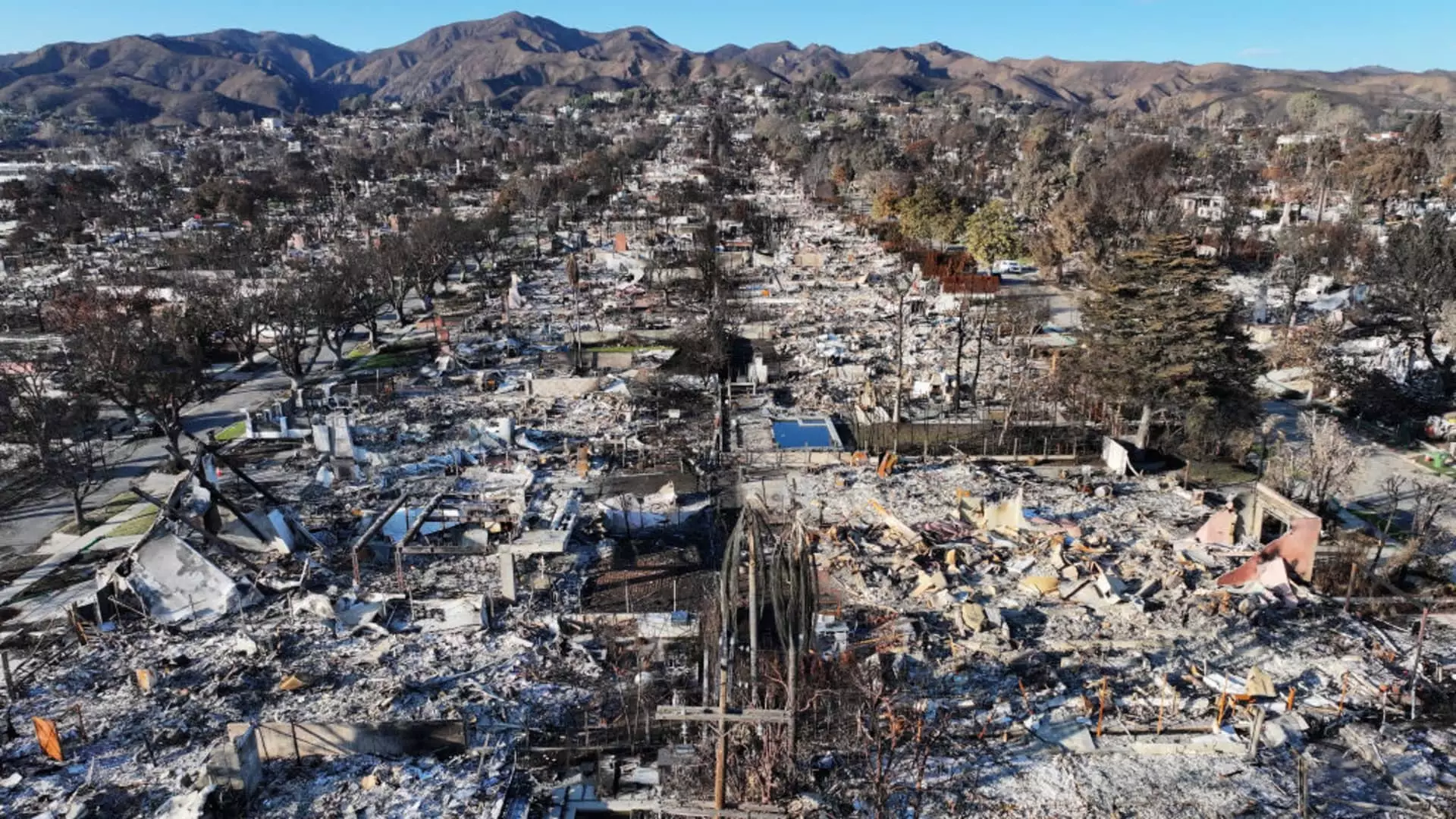The recent Los Angeles wildfires have left a trail of destruction not just in terms of physical property but also in the financial statements of some of the world’s largest reinsurers. Germany’s Munich Re and Hannover Re have reported shocking losses amounting to around €1.73 billion (approximately $1.9 billion) due to these wildfires. Such a massive hit in the first quarter reflects the growing intensity and frequency of climate-related disasters, raising urgent questions about the sustainability of the current insurance model and the dire consequences of climate change on global economies.
In an era where climate science should be embraced with rigorous action, the reinsurers find themselves amidst an ironic twist. While they exist to mitigate such risks, they are also being walloped by the financial repercussions of escalating weather-related calamities. Munich Re’s relatively robust reputation now stands tarnished as they foresee claims totaling €1.1 billion. Their CFO, Christoph Jurecka, attempts to assuage concerns by underlining the firm’s resilience and the prudent management of their portfolio. However, relying on terms like “resilience” rings hollow when the losses starkly highlight a critical vulnerability in the industry’s financial health.
Reinsurance Industry in Crisis?
The reinsurance model operates on a precarious premise, with companies typically not responsible until primary insurers have absorbed losses exceeding €400 million ($444.4 million). This threshold means that reinsurers, while potentially far removed from the initial claims-making process, still grapple with the consequences of primary insurers’ growing struggle under soaring claims. It invites scrutiny into whether this system can hold up as natural disasters escalate in number and severity.
Munich Re’s results specifically illustrate how deeply intertwined the industry has become with the consequences of climate change. The company reported a staggering 72% year-on-year decline in net profit in their property-casualty segment, largely due to the wildfire claims, while their Global Specialty Insurance division saw a nearly total collapse in profits. This begs the question: as the environment continues its unpredictable course fueled by climate change, how many more quarters will the reinsurers bleed red ink before they, and the rest of the insurance industry, rethink their structures?
Market Reactions and Analyst Perspectives
In the wake of these eye-watering losses, market reactions have been telling. Both Munich Re and Hannover Re saw a drop of around 4% in their stock prices, indicating a clear loss of investor confidence. Investment analysts have felt compelled to issue negative sentiments regarding Munich Re, despite its efforts at maintaining optimistic earnings forecasts. RBC Europe expressed their disappointment at the company’s quarterly performance, which fell beneath market expectations, underlining the risks that persist with underestimating climatic phenomena. This skepticism serves as a harsh reminder that even historical giants in the reinsurance sector are not immune to the unpredictable nature of the environment.
Meanwhile, Hannover Re’s fortunes tell a slightly divergent story; they managed to post a quarterly net income that was 7% above consensus due to strong investment performance. Yet they still faced losses that surpassed their projected large loss budget. Herein lies the paradox: while some reinsurers may thrive financially off investments, they remain jeopardized by climate-motivated losses that can obliterate profits almost overnight.
The Philosophical Dilemma of Capitalism vs. Environment
What these figures reveal is a philosophical dilemma faced by society at large: can capitalism and environmental stewardship coalesce? The reinsurers are entrenched in an economic model that thrives on risk assessment, yet the exponentially rising costs of natural disasters challenge the viability of this framework. Continuing to prioritize profit over practicality could lead to a systemic backlash where both individuals and corporations alike grapple with the consequences of climate-related losses—unbearable damage that threatens not just balance sheets but the very fabric of communities.
It’s evident that we need a paradigm shift—not just within insurance but across every sector tethered to ecological sustainability. The status quo is no longer tenable as it perpetuates an environment where disaster leads to financial upheaval. It is imperative that reinsurers, regulators, and stakeholders unite and pivot toward a progressive approach that recognizes the interdependence of resilient economies and healthy ecosystems. Ignoring the warning signs is not merely irresponsible; it is suicidal for our financial systems, our communities, and ultimately, our planet.

